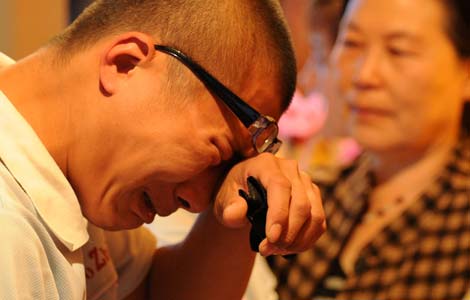Official residence system
Updated: 2013-11-18 07:01
(China Daily)
|
||||||||
To "explore how to implement an official residence system" was among the decisions at the Third Plenary Session last week. Although there have been no details of when and how this will be implemented, it has caught the attention of the public. A signed article in Jinghua Times says this would be a concrete measure to restrict the power of cadres so that the housing benefits they enjoy will be transparent and based on rules.
It is a common practice in some Western countries that officials at certain levels live in a government-provided and maintained residence when they take office and move out after finishing their terms. But this concept is relatively new in China. Some corrupt officials acquire free or subsidized apartments at one place, and accumulate more houses as they move to serve in another place or get promoted, which they then pass to families, relatives, or even mistresses. Some officials sell the properties, which they have obtained for free or which are subsidized, at the market price and then keep the profits. There have been cases in recent years in which officials have been found to own dozens or even hundreds of apartments.
An official residence system would help prevent this kind of corruption and could save public money, since local governments would not have to build a new house each time a new leader entered office. It could also help prevent the loss of State assets and official corruption.
The Party has launched a campaign to clean up undesirable work styles including formalism, bureaucracy, hedonism and extravagance. However, what makes a good practice stick is a rigorous system to ensure it is followed. An official residence system would be a step in the right direction, but it will need top-level design to restrict and supervise official power, and it will also require concrete measures to implement it and ensure it is not abused.
The size, expense and maintenance of official residences should be kept strictly within official limits and who can live in them should be restricted. The name of the occupant, his or her official tenure, and changes of occupancy should be made known to the public. More transparency of the properties owned by officials is also needed to decide whether they are qualified to enjoy the benefits of official residence.
(China Daily 11/18/2013 page8)
Most Viewed
Editor's Picks

|

|

|

|

|

|
Today's Top News
PM Abe busy in ASEAN blitz aimed at Beijing
End of laojiao to take time
Bringing China's best minds home
 SAP innovates for China
SAP innovates for China
China forum explores startup landscape
Leadership's calls for reform hailed
MIT forum to help China tackle problems
EU, China heading in the right direction
US Weekly

|

|














